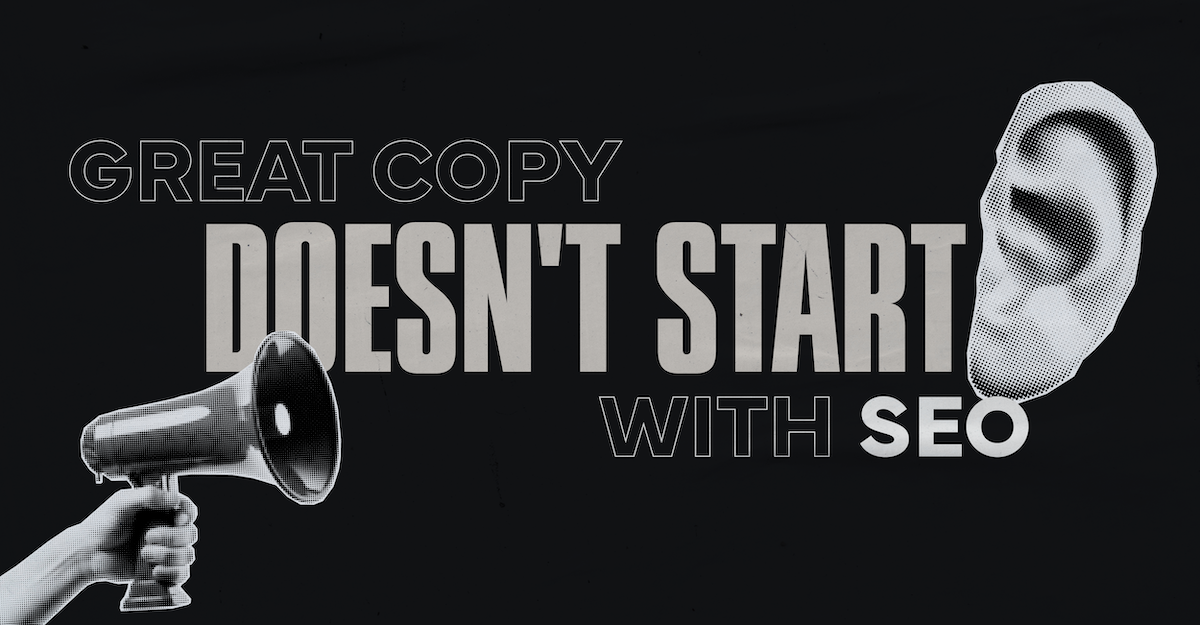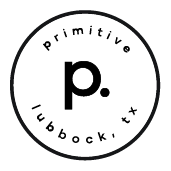connect
connect
BLOG Great Copy Doesn’t Start with SEO
Great Copy Doesn’t Start with SEO
POSTED BY Primitive | May 11, 2022

Why You Shouldn’t Start with SEO (And What to Do Instead)
In digital marketing, the only constant is change.
Just when your strategy starts to feel dialed in, the landscape shifts. New platforms emerge. Algorithms evolve. Audience expectations shift. Few areas reflect this constant evolution more than Search Engine Optimization (SEO).
SEO Should Support Your Message... Not Lead It
When used correctly, SEO can boost visibility, build trust, and attract the right people to your site. But here’s the problem: many brands still get it wrong.
They start with SEO instead of content strategy. They stuff keywords into every header and paragraph. They prioritize search engines over storytelling. The result? Clunky, disconnected content that isn’t helpful. These SEO-first webpages often experience high bounce rates.
Just like your audience, search engines like Google and Bing are smart. They recognize when something is written solely to rank versus when it’s created to actually serve people. Their algorithms now prioritize and reward helpful, human-first content.
Why Your Website Copy Needs a Check-Up First
Imagine walking into your doctor’s office with a sharp pain in your side. But before you finish describing your symptoms, the doctor scribbles a prescription and says, “Take this twice a day,” without even looking up.
You’d hesitate. You might even walk out.
Why? Because they skipped the most important step: listening.
When someone visits your website, they’re often in the same position. They have a need, a pain point—something they’re trying to solve. If your homepage jumps straight into selling with SEO-stuffed headlines—before clearly naming and validating their need—it’s like handing them a prescription without a diagnosis.
Effective website copy starts by making your audience feel understood. It’s not just about your product or service. It’s about them—their goals, their challenges, and how your solution fits into their story.
Businesses that convert well online are the ones that get this balance right. They don’t just highlight what they offer—they first prove they understand the person on the other side of the screen.
When you prioritize SEO before addressing real human needs, you end up with copy that doesn’t resonate.
Start with Value. Then Optimize.
So where does great copy start? With your target audience.
If you want content that performs, focus on what your customer actually cares about—and how you can speak directly to them.
-
-
What do they need?
-
What problems are they facing?
-
What insights or solutions can you share that no one else can?
-
What is their journey, and how can you guide them to take action?
-
Write content that’s useful, clear, and compelling. Then consider how to optimize it for search. That might include refining headers, incorporating key phrases naturally, or linking to related resources. But those are enhancements—not the foundation.
Why SEO isn’t Dead
Check out this quote from Rand Fishkin, founder of Moz:
“I am concerned about how competitive the SEO field is and the relative ROI of input to output, especially for early-stage, just starting out content practices.”
He’s not saying that SEO is dead or ineffective. Instead, he’s saying that it has to be used correctly. This means that:
SEO is a tool to enhance well-written copy—not the driver. You still need to consider keywords and search performance, but only after you've created content that resonates with real people.
Instead of stuffing your pages with overused phrases, focus on your unique value and perspective.
Ready to Work with the Pros?
Your website should be a tool that constantly earns the attention and trust of your audience. Not sure where to start—or if you're anywhere close to getting it right? We can help.
Set up a website audit with our team. We’ll pinpoint where you need support and help you build a site with copy that actually converts.
SHARE THIS POST:

About the writer, Primitive
The team behind On the Dot. is made up of creatives, strategists, and developers who give a damn. At Primitive, we craft digital solutions that help businesses grow from brand to backend. Every insight we share is backed by strategy, driven by results, and built to move your business forward.
